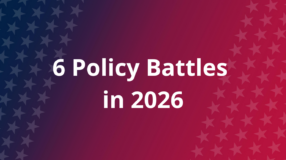North Port, Florida is a coastal town on the Western side of the state. It has a population of around 60,000 people, 26 parks, 10 schools and…no hospital. Travel thirty miles north and you hit Sarasota, Florida. A city with a smaller population has two hospitals.
In 2003, North Port rallied support among city residents for building a hospital. The city was continuing to grow, and residents needed a healthcare facility nearby. The city gathered 20,000 letters of support for a hospital and applied for a certificate-of-need (CON)—a state policy that requires cities to get approval from a state regulatory board before building new healthcare facilities. Florida initially approved North Port’s CON, but surrounding hospitals appealed the decision and won. The community was left without a healthcare facility it wants and needs.
Unless you work in policy, you’ve probably never heard of certificate-of-need laws. However, like the people of North Port, these obscure laws have a significant impact on American lives and patient access across the country. But what exactly are certificate-of-need laws, why were they put in place, and who do they hurt?
What are certificate-of-need laws?
Certificate-of-need laws are regulations that require healthcare providers to get special permission from the government before adding or expanding healthcare services or facilities. For example, if a hospital wants to add an infant heart center, it has to first prove to the state regulatory board why that center is needed—hence the name, “certificate-of-need,” also known as CON. Here’s another example: If a town or city wants to add a hospital, like North Port, Florida, it has to go through the same petitioning process.
The steps for applying for a CON can take years and cost hundreds of thousands of dollars.
Notably, existing hospitals and healthcare providers have the power to oppose the CON of a would-be competitor—by simply claiming there is no need for additional medical services. The Mercatus Center at George Mason University notes: “This is akin to McDonalds needing permission from Burger King to open a restaurant.”
Why were certificate-of-need laws created?
In 1974, the federal government passed the National Health Planning and Resources Development Act. The legislation withheld funds from states who did not enact certificate-of-need programs. By the early 1980s, every state except Louisiana had enacted a version of CON laws. These laws were originally put in place to control healthcare costs, increase healthcare quality, and improve access to care for low-income families.
But research shows CON laws have failed to achieve their stated goals, and have actually done the opposite of what they were intended to do. The federal government noticed these laws weren’t meeting their intended goals and repealed the CON mandate in 1986. Several states followed suit.
Who do certificate-of-need laws help?
Existing hospitals, doctors, and other medical providers benefit from CON laws. These laws shield these groups from competition.
Who do certificate-of-need laws harm?
Certificate-of-need laws harm patients and taxpayers, who face higher healthcare costs and fewer options. The Kaiser Family Foundation found states with CON laws had 11 percent higher healthcare costs than states without those laws. A study by the Mercatus Center at George Mason University found the presence of a CON program is associated with 30 percent fewer hospitals per 100,000 residents across the entire state. Another Mercatus Center study found CON programs have about 99 fewer hospital beds per 100,000 people than states without these regulations. CON states also have fewer Ambulatory Surgical Centersthan non-CON states.
In addition, CON laws particularly harm people who live in rural areas. Research shows there is no evidence CON laws increase access to care, and may be limiting access for rural residents.
What states have certificate-of-need laws?
Thirty-five states have certificate-of-need laws on the books.
What states removed certificate-of-need laws during the pandemic?
Twenty-four states suspended CON laws during the pandemic. Florida is the most recent state to do so, and after they did, more hospitals started popping up all over the state. Because these laws were suspended to help hospitals and doctors respond to the coronavirus, many questioned why these laws were necessary in the first place.
Fast facts about CON laws
- 35 states have certificate-of-need laws.
- 24 states repealed certificate-of-need laws during the coronavirus.
- Certificate-of-need laws harm patients by reducing healthcare quality and reducing access to care.
- States with CON laws have 11 percent higher healthcare costs than states without CON laws.
Additional Reading
Certificate of Need Repeal Would Benefit Alaskans
Alaska Policy Forum
Policy Brief: Certificates of Need Are a 1970s Relic
Alaska Policy Forum
Beacon Explains: Certificate of Need Laws
Beacon Center of Tennessee
CON Reform in Tennessee
Beacon Center of Tennessee
Reforming West Virginia’s CON Laws
Cardinal Institute for West Virginia Policy
Suspend Certificate of Need Laws Now
Cardinal Institute for West Virginia Policy
COVID-19 Necessitates Review of Certificate-of-Need Laws
Cardinal Institute for West Virginia Policy
Research Shows There is No Evidence Suggesting Certificate of Need (CON) Laws are Helpful
Center of the American Experiment
Certificate of Need (CON) Laws in Healthcare Do Not Make Sense
Center of the American Experiment
Roll Back Certificate of Need
Foundation for Government Accountability
Montana’s Certificate of Need Laws Drive Healthcare Prices Higher, Cost Lives
Frontier Institute
What is Certificate of Need?
Goldwater Institute
Hawaii Doesn’t Need ‘Certificate of Need’ Laws
Grassroot Institute of Hawaii
Certificate of Need in North Carolina
John Locke Foundation
North Carolina’s Certificate of Need Law Is One Reason Why Health Care Costs In Charlotte Are So High
John Locke Foundation
Irrational: Do Certificate of Need Laws Reduce Costs or Hurt Patients?
Josiah Bartlett Center for Public Policy
Certificate of Need Law Hurts State’s Ability to Address Mental Health Challenges
Mackinac Center









